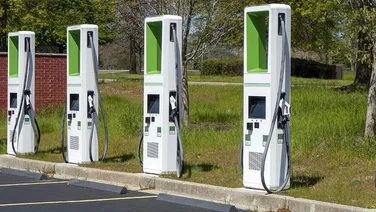- Virgin’s Flight 100 delivered CO2 emissions saving of 64%
- The ad breached BCAP Code rules for misleading advertising and environmental claims
- A total of 68% of people thought sustainable aviation fuel was better than traditional jet fuel

Flight 100 delivered savings of 64% in greenhouse gas emissions
Virgin Atlantic Airways Ltd has had its latest radio ad banned by the Advertising Standards Authority (ASA) over use of a claim that the airline used 100% sustainable fuel.
Current standards only allow for a maximum of 50% sustainable fuel, blended with fossil fuels.
The radio ad in question claimed the upcoming Virgin Atlantic’s Flight 100 from London Heathrow to JFK on November 28th would make the company the “world’s first commercial airline to fly transatlantic on 100% sustainable aviation fuel”.
A resulting five complainants challenged the advert, saying that the ‘100% sustainable aviation fuel’ claim was misleading in regards to the fuel’s environmental impact.
In response, Virgin said “the ad was in reference to a competition they won in December 2022”.
The contest, run by the UK Department for Transport (DfT), was won by Virgin to “support industry to achieve the first net zero transatlantic flight on an aircraft using 100% sustainable aviation fuel within one year”.
According to Virgin, the reason they chose bid on the DfT was to help improve sustainable fuel transparency and its environmental impact for the aviation industry and general public.
Its goal was “to build on prior research and to advance knowledge on the operational feasibility of 100% sustainable aviation fuel. Flight 100 represented the possibility that sustainable fuel could be used and supported by existing fuel infrastructure.
In its response to the decision, Virgin said the advert “didn’t give a misleading impression about the environmental nature, impact or credentials of sustainable aviation fuel”.
The British airline giant claimed a survey they conducted after notification from the ASA to see what people took from the ad showed that most listeners found it easy to understand, and 68% understood that sustainable aviation fuel was better than traditional jet fuel, but not without any impact.
Virgin had to meet the Carbon Offsetting and Reduction Scheme for International Aviation (CORSIA) sustainability criteria established by the ICAO, a United Nations agency, which was to permanently reduce greenhouse gas emissions by 10% and use fuel that wasn’t made from biomass with high biogenic carbon stock.
They blended together Synthetic Paraffinic Kerosene (SPK), which was made using waste oils and lipids from animal fats deemed unfit for human consumption and converted into biofuels for viable reuse. SPK made up 87.6% of the fuel used for Flight 100.
The remaining 12.4% was Synthesised Aromatic Kerosene (SAK), a synthetic fuel derived from sugars from isolated industrial corn starch. The remaining portion of the corn’s oil, protein and fibre was available for food supply chains.
Despite concessions, Virgin confirmed that sustainable aviation fuel produced the same level of CO2 emissions during flight as traditional jet fuel. However, the sustainable aviation fuel used captured carbon, so the CO2 saving was relative to a net increase in atmospheric carbon that would have been emitted had fossil fuels been dug up and used.
Savings were also made in a reduction of CO2 from a lack of extraction, processing, manufacturing, transportation of the fuel. Overall, Flight 100 had delivered a life cycle CO2 emissions saving of 64%.
The BCAP code said that unqualified claims could be misleading, and ASA agreed that a significant portion of people would understand “100% sustainable aviation fuel” to mean that the fuel used was 100% sustainable.
Despite calculating that Flight 100 delivered savings of 64% in greenhouse gas emissions, it was not stated in the radio ad. ASA determined that the absence of information would lead a significant proportion of listeners to overestimate its environmental benefits.
ASA concluded that the unqualified claim “100% sustainable aviation fuel” was misleading. The ad breached BCAP Code rules 3.1 and 3.2 (Misleading advertising), 9.2, 9.3, and 9.5 (Environmental claims).
This resulted in Virgin Atlantic being told to ensure future ads included qualifying information which explained the environmental impact of the fuel.






